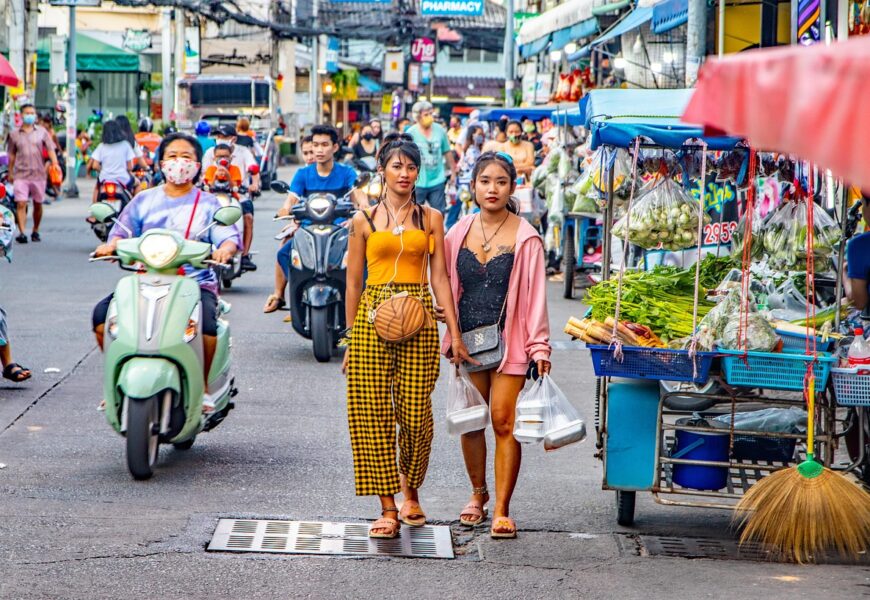Thailand, a vibrant Southeast Asian nation, is home to a diverse and complex society where women play increasingly significant roles across various domains. Understanding the nuanced experiences of Thai women requires a comprehensive exploration of their historical context, cultural dynamics, social challenges, and contemporary achievements. From traditional societal structures to modern professional landscapes, Thai women have navigated complex pathways of identity, empowerment, and personal development.
Historical and Cultural Context of Thai Women
Thai women have historically occupied unique positions within Southeast Asian societies, characterized by relative social mobility and respect compared to many neighboring cultures. Unlike some patriarchal societies, Thai culture has traditionally maintained a more balanced approach to gender roles, with women often holding substantial economic and familial decision-making power. Buddhist cultural influences have significantly shaped perceptions of women’s capabilities, emphasizing compassion, resilience, and spiritual potential.
Anthropological research reveals that pre-colonial Thai societies frequently recognized women’s contributions beyond domestic spheres. Women participated actively in agricultural economies, trade networks, and community leadership, challenging simplistic narratives of female subordination. Traditional Thai social structures allowed women significant agency in familial and economic contexts, establishing foundations for contemporary gender dynamics.
Education and Professional Advancement
Modern Thai women have achieved remarkable educational progress, consistently outperforming male counterparts in university enrollment and academic achievements. Recent statistical data indicates that approximately 60% of university graduates in Thailand are women, representing a significant shift in educational opportunities. This educational empowerment has translated into increased professional representation across multiple sectors, including business, technology, government, and healthcare.
Professional Thai women are increasingly challenging traditional employment barriers, occupying leadership positions in corporations, entrepreneurial ventures, and public institutions. The technology and startup ecosystems in Bangkok and other major cities have witnessed substantial female leadership, with women founding innovative companies and driving economic transformation. These achievements demonstrate the evolving landscape of gender dynamics in contemporary Thai society.
Social Challenges and Empowerment Movements
Despite significant progress, Thai women continue confronting complex social challenges related to gender equality, workplace discrimination, and cultural expectations. Sexual harassment, wage disparities, and limited leadership opportunities persist in certain professional environments. Grassroots feminist movements and advocacy organizations have emerged to address these systemic issues, promoting legislative reforms and challenging deeply entrenched societal norms.
Contemporary Thai feminist discourse emphasizes intersectionality, recognizing diverse experiences across urban and rural contexts. Activists are addressing issues ranging from reproductive rights to economic opportunities, creating nuanced dialogues that challenge monolithic representations of Thai women’s experiences. These movements leverage social media platforms and academic research to amplify marginalized voices and promote comprehensive social transformation.
Cultural Identity and Global Perspectives
Thai women’s cultural identity represents a sophisticated blend of traditional values and global influences. While maintaining deep connections to Buddhist philosophies and familial traditions, many women actively engage with international perspectives, creating dynamic, multifaceted identities. Fashion, arts, and creative industries have become significant platforms for expressing these complex cultural negotiations.
Globalization has introduced unprecedented opportunities and challenges for Thai women, enabling transnational connections while simultaneously preserving unique cultural characteristics. Language skills, digital literacy, and cosmopolitan perspectives have become critical assets in navigating increasingly interconnected professional and personal landscapes.
Contemporary Relationships and Social Dynamics
Changing relationship paradigms reflect broader societal transformations among Thai women. Traditional marriage expectations have evolved, with increased emphasis on personal autonomy, professional development, and individual choice. Urban educated women are delaying marriage, prioritizing career achievements, and redefining conventional relationship structures.
Technological platforms and changing social norms have significantly influenced romantic and personal relationships. Digital connectivity enables more diverse relationship models, challenging traditional courtship practices and expanding individual agency in partner selection and relationship management.
Future Perspectives and Potential
The future for Thai women appears increasingly promising, characterized by expanding opportunities, enhanced educational access, and growing societal recognition. Continued investments in gender equality, educational infrastructure, and professional development will be critical in realizing full potential. Emerging generations of Thai women demonstrate remarkable resilience, creativity, and commitment to personal and collective advancement.
As Thailand continues navigating complex social transformations, women will undoubtedly play pivotal roles in shaping economic, cultural, and technological landscapes. Their experiences represent a dynamic intersection of tradition and innovation, offering profound insights into contemporary Southeast Asian social dynamics.









